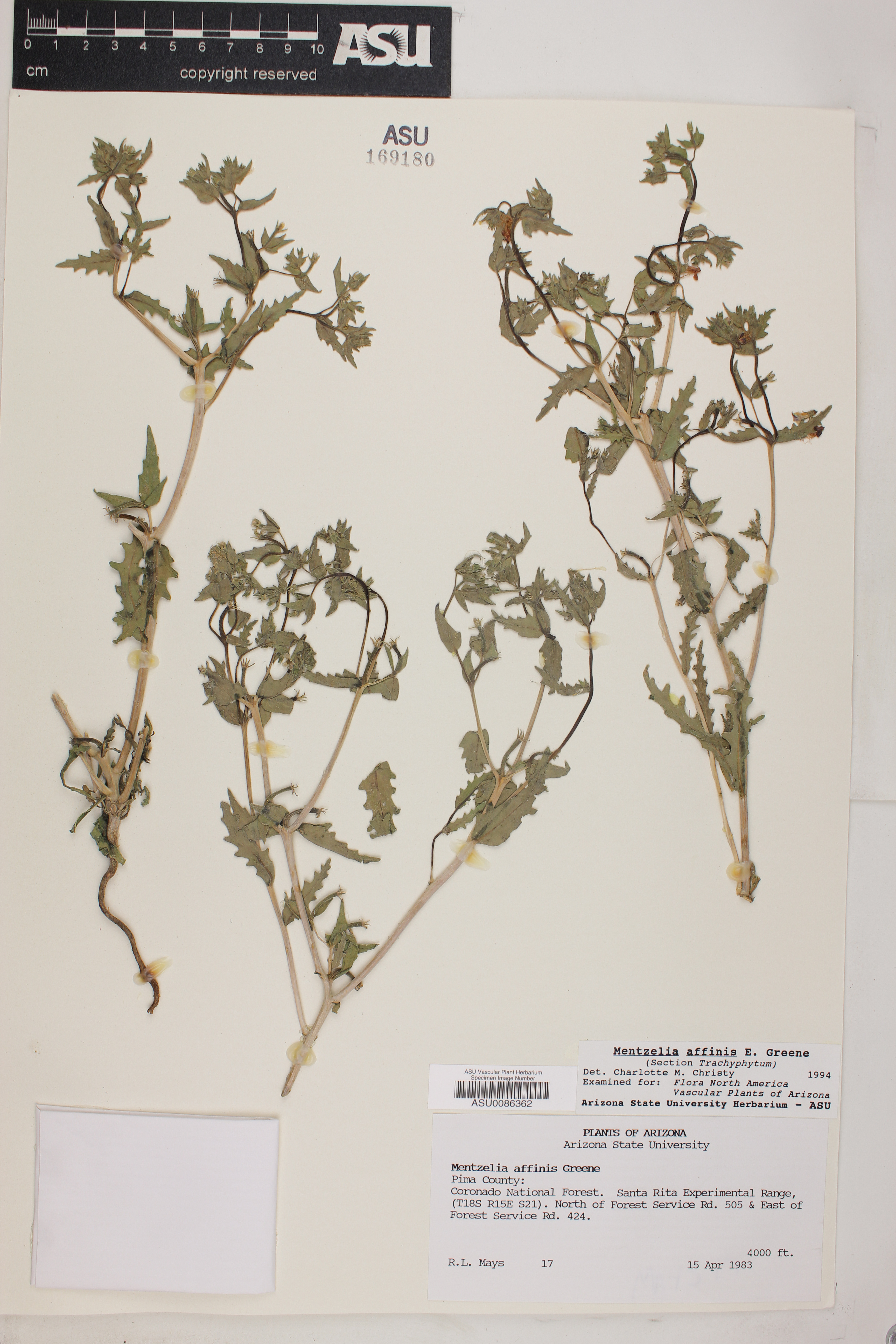- Home
- Search
- Images
- Datasets
- Sample Use
- How to Cite
- Additional Information
- About NEON
- NEON Data Portal
- ASU Biocollections
- About Symbiota
|
|
|
|
Family: Loasaceae
yellowcomet
|
Plant: annual herb; stems to 50 cm tall Leaves: to 14 cm long, sessile, oblanceolate, narrowly elliptic or nearly linear; margin mostly toothed to lobed INFLORESCENCE: cymose; BRACTS lanceolate to ovate, green, mostly not on ovary; margins entire or few-toothed to -lobed Flowers: sessile; petals yellow, 2-4.5 mm long, 1-2.5 mm wide; staminodia 0; stamens ca. 15-30, all with linear filaments; style 1-2.5 mm long Fruit: capsules narrowly cylindric, linear, not tapering to base; base with woody ribs; body (6-)10-28 mm long, straight or arching to 90 degrees. SEEDS pendulous, not winged, those in upper half of capsule prismatic, 3-faceted, 3-angled in cross-section; testa cells with straight adjoining walls, the surface walls flat-topped Misc: 300-1350 m (1000-4500 ft); Jan-May References: C. Christy - Loasaceae - JANAS 30:96-111.ASU Specimens. REFERENCES: Christy, Charlotte M. 1998. Loasaceae. J. Ariz. - Nev. Acad. Sci. 30(2): 96. Christy 1998, Kearney and Peebles 1969, McDougall 1973 Duration: Annual Nativity: Native Lifeform: Forb/Herb General: Annual with slender white stems, to 40 cm tall, stems shining, glabrous to pubescent, hairs of the vegetation cause the plant to stick to clothing, although the hairs are not stinging. Leaves: Blades sessile, scabrous, thick, the lower leaves narrowly oblanceolate, the margins dentate to entire, the upper leaves linear to lanceolate, 2-3 cm long, pinnatifid. Flowers: Yellow, axillary, sessile, solitary, or in small clusters, sepals to 2 mm long, petals to 4 mm long, stamens shorter than the petals. Fruits: Linear-cylindric capsules to 16 mm long, seeds square and irregularly angled, seeds grooved on the angles. Ecology: Found in sandy soils, in washes and on plains, from 1,500-2,000 ft (457-610 m); flowering March-June. Distribution: s AZ, CA Notes: This species looks very similar to M. albicaulis, look to the irregularly cubic seeds of M. affinis to differentiate. Mentzelias are tricky; please note that mature fruits and seeds are nearly always necessary for ID. Ethnobotany: Seeds parched, ground, and eaten, or stored for future use. Etymology: Mentzelia is named for Christian Mentzel or Christianus Mentzelius (1622-1701), a 17th century German botanist, while affinis means bordering on or related or similar to. Synonyms: None Editor: LCrumbacher, 2011 |


